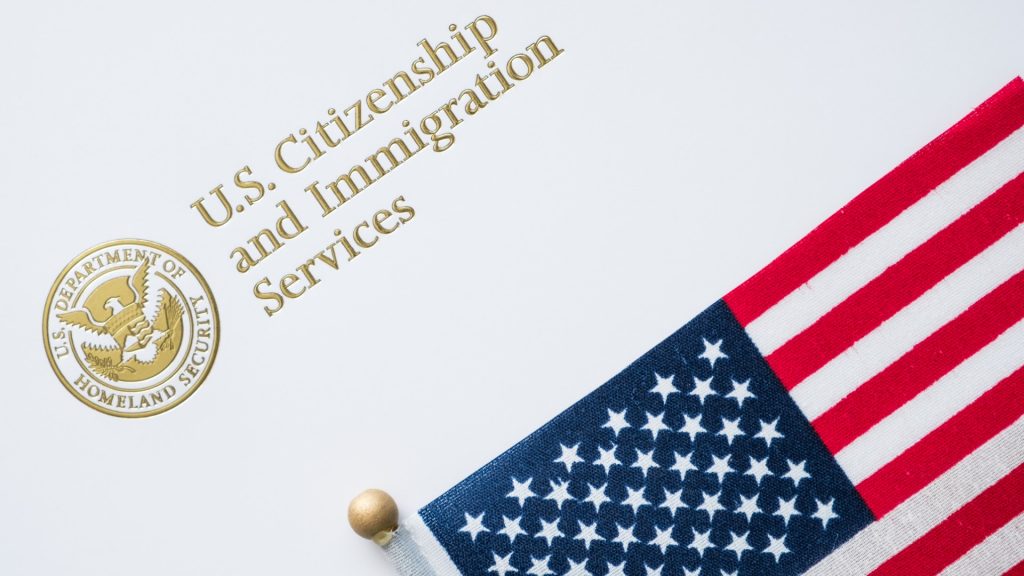Effective April 1, 2024, USCIS plans to raise filing fees for nearly all categories of immigration benefits. According to USCIS, the new fees will help to cover more of its operating costs and support faster processing of new applications.
Many forms will also have new editions available. USCIS will accept earlier editions of most forms during a grace period from April 1, 2024, through June 3, 2024. However, some of the new forms with revised fees will not have a grace period.
It is important to note that separate fees for Advance Parole (AP) and Employment Authorization Document (EAD) will now be required when filed with an Adjustment of Status (AOS) application. Historically, there have not been filing fees required when applying for these benefits with an Adjustment of Status (AOS) application. However, biometrics fees will no longer be charged for most applications.
A lawsuit was filed in federal court in mid-March attempting to block the implementation of the new final rule. The new fee schedule will still go into effect on April 1, 2024, unless an injunction is granted. The attorneys at Garfinkel Immigration Law Firm continue to monitor the situation closely and will alert clients if and when circumstances evolve.
Employment-based nonimmigrant visa fees
Notably, the final fee rule establishes separate fees for Form I-129, Petition for a Nonimmigrant Worker, by nonimmigrant classification. Outlined below are changes to some of the more common employment-based nonimmigrant petition classifications. Fees marked with an asterisk (*) are eligible for a $50 discount if filed online rather than via paper mailing.
H-1B
25 or more employees — I-129 fee: $780, Anti-fraud fee: $500, ACWIA fee: $1,500, Asylum fee: $600, Premium processing: $2,805, H-1B cap registration fee: $215
Less than 25 employees — I-129 fee: $460, Anti-fraud fee: $500, ACWIA fee: $750, Asylum fee: $300, Premium processing: $2,805, H-1B cap registration fee: $215
Qualifying nonprofits — I-129 fee: $460, Anti-fraud fee: $500, ACWIA fee: N/A, Asylum fee: N/A, Premium processing: $2,805, H-1B cap registration fee: N/A
H-1B registrations (beginning next fiscal year) —$250 per registration
The ACWIA fee, if applicable, is only required for the first/second petition by the employer for the employee.
L-1A/L-1B
25 or more employees — I-129 fee: $1,385, Anti-fraud fee: $500, Asylum fee: $600, Premium processing: $2,805
Less than 25 employees — I-129 fee: $695, Anti-fraud fee: $500, Asylum fee: $300, Premium processing: $2,805
The anti-fraud fee is only required for the first petition by the employer for the employee.
TN
25 or more employees — I-129 fee: $1,015, Asylum fee: $600, Premium processing: $2,805
Less than 25 employees — I-129 fee: $510, Asylum fee: $300, Premium processing: $2,805
Qualifying nonprofits — I-129 fee: $510, Asylum fee: N/A, Premium processing: $2,805
O
25 or more employees — I-129 fee: $1,055, Asylum fee: $600, Premium processing: $2,805
Less than 25 employees — I-129 fee: $530, Asylum fee: $300, Premium processing: $2,805
Qualifying nonprofits — I-129 fee: $530, Asylum fee: N/A, Premium processing: $2,805
R-1
25 or more employees — I-129 fee: $1,015, Asylum fee: $600, Premium processing: $1,685
Less than 25 employees — I-129 fee: $510, Asylum fee: $300, Premium processing: $1,685
Qualifying nonprofits — I-129 fee: $510, Asylum fee: N/A, Premium processing: $1,685
Employment-based green card fees
Form I-140 (Immigrant Visa Petition)
25 or more employees — I-140 fee: $715, Asylum fee: $600, Premium processing: $2,805
Less than 25 employees — I-140 fee: $715, Asylum fee: $300, Premium processing: $2,805
Qualifying nonprofits — I-140 fee: $715, Asylum fee: N/A, Premium processing: $2,805
Adjustment of Status (AOS)
AOS filing fee (beneficiary 14 or older) — $1,440
AOS filing fee (beneficiary younger than 14) — $950
EAD filing fee — $260
AP filing fee — $630
Other
Dependent I-539* — $470
Dependent EADs* — $520
AP/Re-entry permit — $630
J-1 waiver — $905
Family-based fees
Fees marked with an asterisk (*) are eligible for a $50 discount if filed online rather than via paper mailing. Consular fees are unchanged under this rule.
Form I-130 Petition for Alien Relative
I-130 filing fee*: $675
AOS
AOS filing fee (beneficiary more than 14 years old) — $1,440
AOS filing fee (beneficiary under 14 years old) — $950
EAD filing fee if filing with AOS — $260
AP filing fee — $630
Form I-601/I-601A waivers
I-601 filing fee — $1,050
I-601A filing fee — $795
K-1
I-129F filing fee* — $675
Form I-751
Filing fee — $750
Naturalization
Filing fee* — $760
Other
Form I-539 applications* — $470
EAD applications* — $520
AP/re-entry permit — $630
Form I-90*— $465
Premium process fee increases
Separately, USCIS published a final rule at the end of 2023 announcing it was intending to raise the cost for filing a Form I-907, Request for Premium Processing. That fee increase took effect in late February 2024.
The new cost for a filing a Form I-907, Request for Premium Processing ranges from $1,685 to $2,805, depending on petition and visa type, and is noted above in the applicable categories. The complete list of the new premium processing fees can also be found here.
As part of this same final rule, USCIS began using business days rather than calendar days in its processing timeline for cases requesting premium processing service. Specifically, cases are now processed as follows:
- 15 business days for most classifications
- 30 business days for Form I-765 for F-1 students seeking OPT or STEM OPT extensions
- 30 business days for Form I-539 applicants requesting a change of status to F-1, F-2, M-1, M-2, J-1, or J-2
- 45 business days for Form I-140 multinational executive or manager and Form I-140 National Interest Waiver classifications.
USCIS said the price increase was necessary because of “inflation.”
“DHS will use the revenue generated by the premium processing fee increase to provide premium processing services; make improvements to adjudications processes; respond to adjudication demands, including reducing benefit request processing backlogs; and otherwise fund USCIS adjudication and naturalization services,” a press release from USCIS read.

